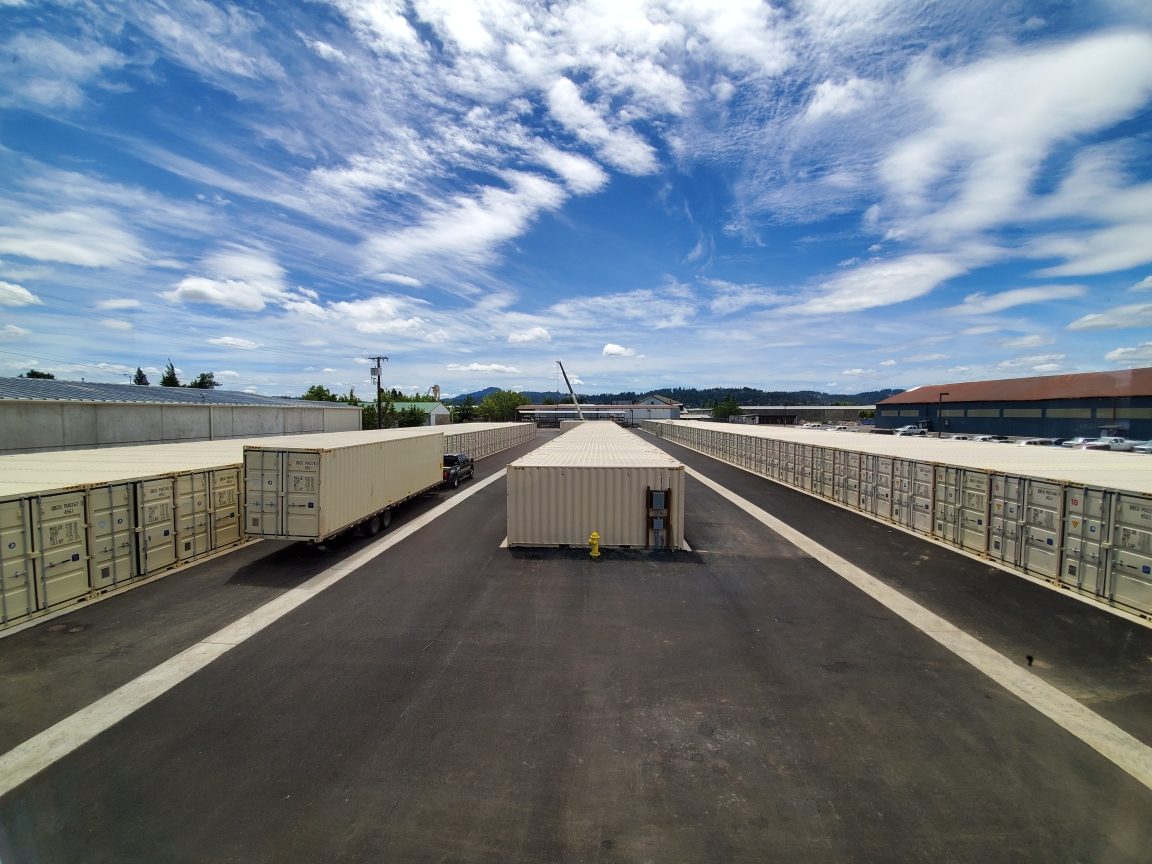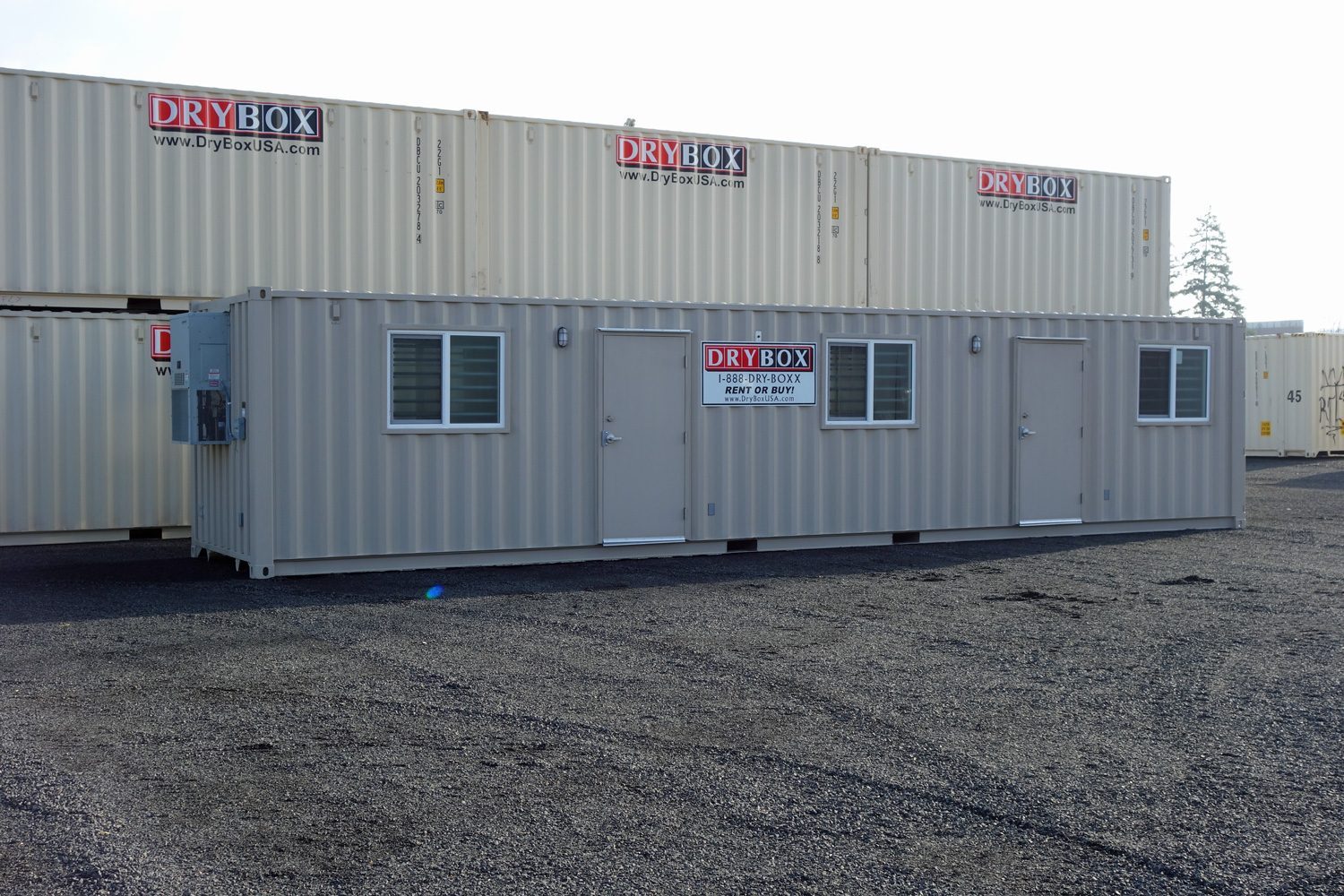Shipping Container Disaster Relief
In times of disaster, people need quick and reliable help. And, if there's one thing that can provide shelter and comfort in these circumstances, it's shipping containers.
If you're unsure about using them, it's understandable to have questions. However, their durability, ability to handle tough environments, and ease of transport make them a smart and practical option.
In this article, we'll explore how shipping containers are used in disaster relief, their many advantages, and factors to consider when planning to use them.

Advantages of Using Shipping Containers for Community Aid
Shipping containers are a smart and practical choice when it comes to emergency situations because they offer many benefits, namely:
- They are affordable and cost less than traditional building methods. Their strong design means they can be reused many times, saving money in the long run.
- Their compact size allows them to be stacked, saving space in crowded areas and making them useful in tight locations.
- Containers can be customized and equipped with utilities like water and electricity, making them self-sufficient and ready to use without needing extra support.
- Reusing containers helps reduce waste and supports environmentally friendly practices, which is important for sustainable disaster relief.
- They are easy to find and can be transported quickly to areas in need, making them a fast solution for emergencies.
- Containers can be pre-stocked with supplies like food, water, and medical tools so they are ready to use as soon as they arrive.
- Their sturdy design makes them strong enough to handle tough weather and keep supplies safe and secure.
- Containers can be adapted for different uses, such as housing, medical clinics, or storage, which makes them flexible and useful in many situations.
Factors to Think About When Using Shipping Containers
Shipping containers can be highly effective in disaster relief, but their success depends on proper planning and management. Here are some important things to consider:
- Plan for eco-friendly practices, such as reusing or recycling containers, to reduce waste and lessen environmental impact.
- Create a budget that includes costs for purchasing, transporting, and modifying containers to ensure the project stays affordable.
- Make sure containers can be delivered to the affected area by planning routes and checking road access, especially in remote locations.
- Inspect containers regularly for rust or damage to keep them safe and functional during their use.
- Follow local rules, such as permits and safety standards, to avoid legal or operational issues.
- Work with local communities by providing training on how to use and maintain containers, helping them benefit from these resources long-term.
- Adapt containers to meet specific needs, such as adding insulation, medical equipment, or other features to make them more useful.
Uses For Shipping Containers In A Disaster
Here are some practical ways shipping containers can be used to support recovery efforts:
Supply and Equipment Storage
Strong and weatherproof, shipping containers are ideal for storing essential supplies like food, water, tools, and medical equipment. Their sturdy build keeps items protected from theft and damage during chaotic situations.
Mobile First Aid Stations
When immediate medical care is needed, shipping containers can be transformed into compact first aid units. These spaces are designed to hold basic medical supplies and provide treatment for disaster victims.
Food and Medicine Storage
Refrigerated containers and reefer trailer rentals provide critical onsite cold storage to keep food, medicine and other temperature sensitive items fresh during emergencies.
Temporary Shelter and Housing
For families displaced by disasters, shipping containers can be modified into temporary homes. Once modified with insulation, proper ventilation, and utilities, these containers can become safe and comfortable living spaces.
Support for Property Restoration
Essential tools and building materials for repairing damaged properties can be securely stored in shipping containers. Their use helps speed up recovery efforts and ensures resources are close at hand.
Emergency Command Centers
Disaster response teams often require organized spaces for planning. A converted container can serve as a fully equipped mobile command center with workstations and communication tools.
Medical Treatment Facilities
In areas where hospitals are overwhelmed or destroyed, shipping containers can act as temporary clinics or treatment spaces.
Spaces for Planning and Coordination
Disaster relief operations need organized meeting areas. A shipping container office can be used for strategy discussions and coordination, even in the middle of chaotic surroundings.
Helping with Long-Term Recovery
After the initial relief phase, containers can be reused for ongoing needs. They work well as storage for rebuilding supplies or as community centers to assist in long-term recovery projects.

Examples of Shipping Containers in Disaster Relief
Shipping containers have been used as havens for calamities around the world for many years now. A study presented at the 4th International Conference on Building Resilience (2014) looked at real-life cases where containers were used for temporary housing after disasters.
Here are some examples based on their findings:
Hurricane Katrina (2005)
After Hurricane Katrina in the U.S., many people were displaced, and shipping containers became a practical option for temporary housing and storage. Their sturdy design kept supplies safe, and their portability allowed for quick deployment.
Christchurch Earthquake (2011)
Following the earthquake in Christchurch, New Zealand, containers were repurposed into temporary homes and public spaces. They also acted as barriers to secure unsafe areas. Their modular design made them easy to adapt to the city's needs, offering both shelter and practical support for recovery efforts.
Black Saturday Bushfires (2009)
In Victoria, Australia, the Black Saturday bushfires left many without homes. Containers provided temporary housing, allowing residents to stay close to their properties while rebuilding.
L'Aquila Earthquake (2009)
In Italy, after the L'Aquila earthquake, shipping containers were used to create temporary housing communities. These units were equipped with basic utilities and offered families a secure place to stay while permanent homes were rebuilt.
Conclusion
It goes without saying that shipping containers are a smart and useful option when it comes to helping people in need.
However, the success of using containers depends on good planning and working with the community. Preparing them ahead of time, customizing them for specific needs, and following local rules can make them even more effective.
If you are thinking about using shipping containers for disaster relief, they are indeed a reliable and cost-saving choice. Just pair it with the right preparation, and they can help communities recover faster and give people the support they need in difficult times.
Prepare for Disaster Relief with Reliable Containers
Looking for strong, adaptable shipping containers to support disaster relief efforts?
Dry Box containers are built to handle tough conditions and can be customized for housing, medical units, storage, and more. With durable designs and expert support, we help you create practical solutions that meet urgent needs.
Get in touch today to find the perfect container for your community project. Together, we can ensure communities have the resources they need to recover and rebuild.









